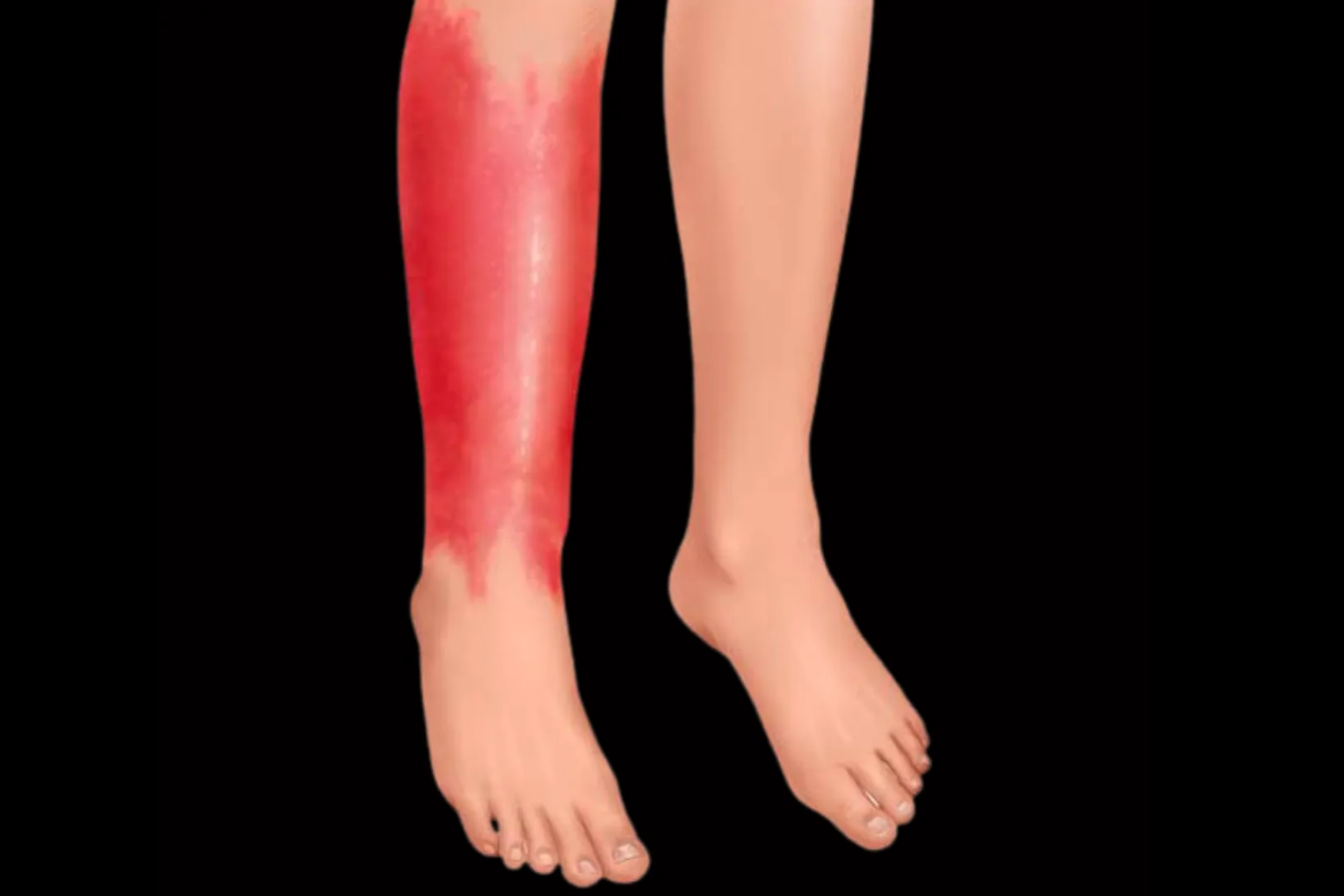Familial Mediteranean Fever (FMF)
AiArthritis defines Familial Mediterranean Fever as:
FMF is a genetic disorder that causes repeated episodes of pain and inflammation in the abdomen, chest, joints, and skin, along with fever. It mostly affects people from Mediterranean backgrounds, such as Arab, Armenian, Turkish, and Sephardic Jewish populations. FMF comes in two types:
- FMF Type 1: Causes recurring inflammation and symptoms like fever, abdominal pain, chest pain, and joint pain. If not treated, it can lead to kidney problems due to a buildup of a protein called amyloidosis.
- FMF Type 2: The main symptom is amyloidosis, even if other FMF symptoms aren’t present.
Symptoms & Characteristics
Common in All AiArthritis Diseases
Flares: Periods of worsening symptoms are called flares. A flare can last for hours, days, weeks, or months.
Physical Activity: Condition improves with activity and exercise and worsens with rest.
Comorbidities: When inflammation is left uncontrolled due to lack of proper treatment, comorbidities can develop. 70% of patients with chronic, lifelong disease will develop comorbidities, including dual or triple diagnoses.
Family History:
Autoimmune diseases often run in families, indicating a potential genetic predisposition where that gene can cause disease. Autoinflammatory diseases can occur multiple times in a family, but is based off of genetic mutation. It is not a gene that causes the disease— but a mutation on the gene that can cause the disease which can then be passed on to the next generation.
"Auto" Symptoms
Fatigue: Severe fatigue or exhaustion that may not be helped by caffeine/stimulants and can happen even after a long period of rest.
Cognitive Dysfunction: Brain fog or periods of time where thinking gets clouded and it becomes difficult to concentrate.
Flu-like symptoms: Without having the flu- nausea, muscle weakness, and general malaise.
Fever: Typically low grade in autoimmune (with exception of juvenile idiopathic arthritis) and higher grade in autoinflammatory (% strongly varies per disease).
Reference: Early Symptoms of AiArthritis Study, AiArthritis, 2019.
Inflammatory Arthritis Symptoms
Stiffness: Severe stiffness in one or more joints, especially in the morning or after sitting for long periods of time.
Joint Pain: Episodes of joint pain that may last for hours, days, or even weeks, that can appear and disappear suddenly. Often described as “jumping pain” into different locations.
Typically the joint pain will coincide with one or more “Auto” symptoms and start and stop suddenly - for no apparent reason (which is called a "flare"). Some people will experience all of the above symptoms, others only a few.
If you have any of the arthritis features, and at least one of the “Auto” features, please consult your physician about a referral to a specialist.
Symptoms Often Associated with Familial Mediterranean Fever
- Abdominal pain
- Chest pain (due to pericarditis)
- Skin rash, usually on the legs, which looks like erysipelas (a skin infection)
- Muscle pain and weakness
- Testicular pain
- Amyloidosis
(protein buildup that can harm the kidneys)
Diagnosing Familial Mediterranean Fever
There’s no single test that can confirm a Familial Mediterranean Fever (FMF) diagnosis, so rheumatologists rely on a combination of physical exams, genetic testing for mutations in the MEFV gene, and family history of autoimmune or autoinflammatory diseases, as well as ethnicity, since FMF is more common in certain populations. While genetic testing for the MEFV mutation is important, the absence of mutations does not completely rule out FMF. In some cases, doctors may start patients on Colchicine to see if symptoms improve, as a positive response can strongly suggest an FMF diagnosis.
The Tel-Hashomer criteria are also used to aid in diagnosis. Patients must meet more than one major criteria or more than two minor criteria:
Major criteria:
- Attacks of generalized peritonitis
- Pleuritis (unilateral) or pericarditis
- Monoarticular arthritis of the hip, knee, or ankle
- Fever as the only symptom
- Incomplete abdominal attacks
Minor criteria:
- Incomplete attacks involving joints, chest, or both
- Leg pain with exertion
- Favorable response to Colchicine treatment
- Typical attacks are recurrent (at least three episodes of the same type), febrile (rectal temperature ≥ 38° C), and short in duration (12 hours to 3 days)
Complete attacks are painful, recurrent, and usually follow a predictable pattern, but they may differ in some features, such as lower temperatures (< 38° C), variation in attack length (6 hours to 1 week), or atypical symptoms like localized abdominal attacks or arthritis in joints other than the hip, knee, or ankle.
Though there are no specific ACR or EULAR guidelines for FMF, these organizations emphasize comprehensive evaluation, including genetic testing and clinical response to treatments like Colchicine, to ensure an accurate diagnosis and proper management of the disease.
Familial Mediterranean Fever Treatment Options
Treatment OptionsTreatments are tailored to each individual's disease, but visit our Treatment Options page to learn more about the different types of treatments that are used for Familial Mediterranean Fever.
What Fellow Familial Mediterranean Fever Patients Want You to Know
Submit YOUR AdviceWe need YOUR advice! Fill out this form to give peer advice to those with your disease.
Interesting Facts about Familial Mediterranean Fever
- FMF was first described in the early 20th century, observed in populations around the Mediterranean Sea, particularly Armenians, Sephardic Jews, and Turks. The name reflects its geographic and genetic prevalence in families of Mediterranean origin, where it presents as periodic fevers and inflammation.
- Ancient Condition: FMF has likely been around for thousands of years, and some ancient texts describe illnesses resembling it.
- High Carrier Frequency: In some places like Armenia, about 1 in 5 people carry a mutation related to FMF.
- Global Presence: While it's called "Mediterranean" fever, it has been found in people of various ethnicities all around the world.
Familial Mediterranean Fever Awareness Days/Months
- World Autoimmune and Autoinflammatory Arthritis Day - May 20th
- Rare Disease Day - February 29th (28th)
- Autoimmune Awareness Month - March
- Rheumatic Disease Awareness Month - September
- Pain Awareness Month - September
- Chronic Disease Awareness Day - July 10th
- Invisible Disabilities Week - 3rd full week of October
Other Familial Mediterranean Fever
In an effort to ensure this page has the most accurate and up-to-date information, this page is currently awaiting medical review. Some information is subject to change.
Page Last Updated: 10/31/2024




